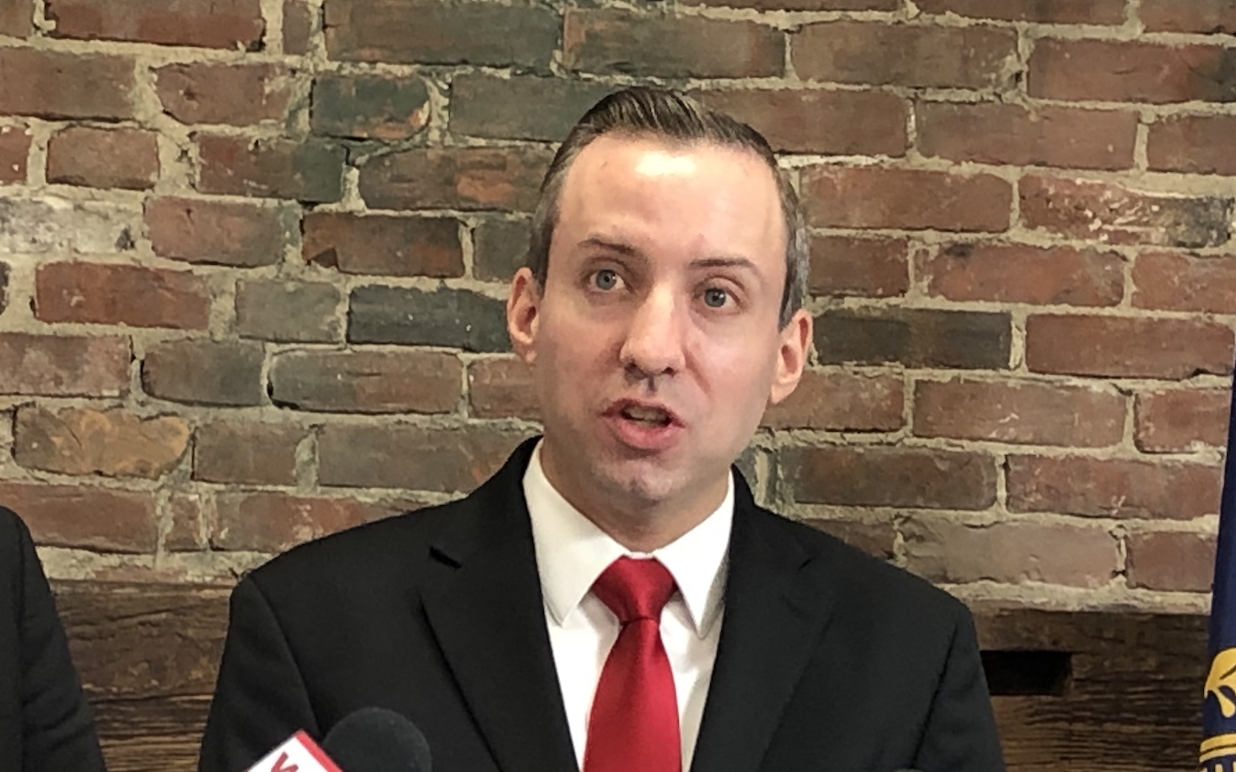Sununu Admin Appeals Ruling Against Anti-Discrimination Law

The federal court ruling that struck down New Hampshire’s anti-discrimination law is “misguided” and needs to be overturned, New Hampshire Attorney General John Formella said Wednesday.
Formella announced his office is appealing United States District Court Judge Paul Barbadoro’s May ruling that found New Hampshire’s law barring the teaching of discriminatory content in schools is too vague and, therefore, violates the constitutional rights of educators.
“Today’s decision to appeal this misguided ruling underscores our commitment to upholding the right of duly elected legislators to enact carefully considered policy and clarity in our state laws,” Formella said.
The law, misleadingly labeled a “divisive concepts ban” by critics and the left-leaning press, seeks to stop teachers and other government employees from presenting discriminatory ideas as facts. Under the law, teachers and schools:
- Cannot “teach, advocate, instruct, or train” people that one group is inherently superior or inferior to another.
- Cannot teach that people are inherently racist, sexist, etc., based on the group they’re in.
- Cannot teach that people should be discriminated against based on their group.
- Cannot teach people not to even try to treat people in other groups equally (the “race shouldn’t matter/colorblind” approach.)
As a result, school districts like Manchester, Litchfield and Laconia could no longer use Critical Race Theory-based curriculum in their classrooms.
Barbadoro’s ruling opened the door for CRT-based lessons to return.
Barbadoro argued the attempt to prevent teachers from telling students they are racist, sexist, etc. crossed the line into viewpoint discrimination due to the vagueness of the law.
“The most obvious vagueness problem is presented by the fourth concept, which prohibits teaching that individuals of one group ‘cannot and should not attempt to treat others without regard to’ their membership in another group. As other courts have observed, this language is ‘bordering on unintelligible’ because it employs the dreaded triple negative form,” Barbadoro wrote.
The anti-discrimination law gave parents the ability to bring complaints when they believed schools and teachers were engaging in discriminatory lessons. Barbadoro’s ruling shuts down the avenue for parents, according to Formella.
“By appealing this decision, we aim to ensure that our laws are interpreted and applied in a manner that respects both the constitution and the democratic process,” Formella said. “This case is not just about legal technicalities; it’s about safeguarding the integrity of our legislative process and ensuring clarity and stability for our educators, students, and communities across New Hampshire.”
As part of his appeal announcement on Wednesday, Formella also issued new guidelines for the state’s Human Rights Commission, Department of Education, and Department of Labor on handling any parental complaints.
The Human Rights Commission is to accept all complaints but dismiss allegations that teachers or schools violated the anti-discrimination laws. The Department of Labor is to put a halt to any pending whistleblower complaints based on retaliation against people who reported anti-discrimination. The Department of Education is instructed to put a halt on all its investigations into complaints. Any pending matters for DOE adjudication are to be stayed pending the appeal.
Frank Edelblut, New Hampshire’s Education commissioner, did not respond to a request for comment. Barbadoro cited Edelblut’s attempts to clarify the law through newspaper op-eds in his ruling, saying Edelblut only added to general teacher confusion and fear.
“The threat of arbitrary enforcement based on Edelblut’s personal views has impacted teachers even in the absence of a formal complaint,” Barbadoro wrote.











